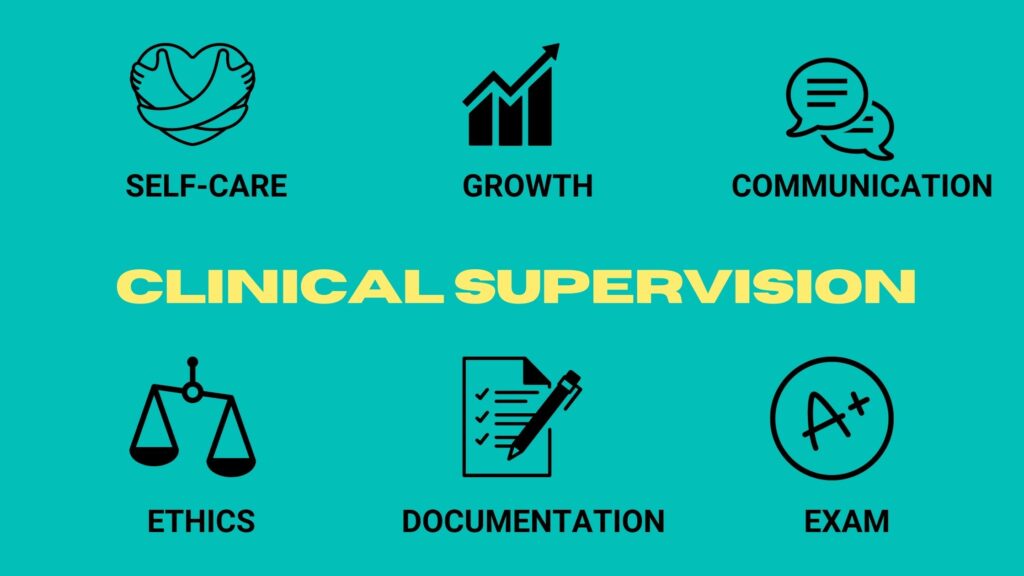If you are a mental health professional, you will likely need to receive clinical supervision at some point in your career. This can be an extremely valuable experience, but it is important to find the right supervisor who can help you grow and learn. In this blog post, we will discuss what clinical supervision is and how to find a qualified supervisor who meets your needs.
Contents
- 1 What Does Clinical Supervision Mean?
- 2 Why Clinical Supervision Is Important?
- 3 What Are Different Models Of Clinical Supervision?
- 4 How To Find Clinical Supervision Opportunities?
- 5 What Are The Benefits of Clinical Supervision?
- 6 What To Look For In A Clinical Supervisor?
- 7 What Are The Clinical Supervision Policies?
- 8 Conclusion
- 9 A Word From Therapy Mantra
What Does Clinical Supervision Mean?

The term “clinical supervision” can be used in a variety of ways, but typically it refers to the process by which licensed mental health professionals (LMHPs) provide guidance and feedback to therapists who are working towards licensure. In some cases, clinical supervision may also be provided to experienced clinicians who want to brush up on their skills or learn new techniques.
Why Clinical Supervision Is Important?

Supervision is an invaluable resource for any clinician. It provides a forum to discuss cases, receive feedback and support, and develop as a professional. A good supervisor can challenge your thinking, help you learn new skills, and provide guidance when you need it most.
There are many different types of supervision models, so it is important to find one that fits your needs. If you are unsure where to start, ask your colleagues or look for resources online. Once you have found a few potential supervisors, set up an initial meeting to get to know them better. Ask about their experience, approach to supervision, and what they expect from their supervisees.
However, the most important thing is to find a supervisor with who you feel comfortable and safe. This person should be someone you can trust and who will support your professional development.
What Are Different Models Of Clinical Supervision?

There are different models of clinical supervision, and the model that is right for you will depend on your needs and preferences. The most common models are the traditional model, the mentorship model, and the peer consultation model.
Traditional Model
The traditional model of clinical supervision is based on a hierarchy, with the supervisor in the role of the teacher and the supervisee in the role of the student. In this model, the supervisor provides guidance and feedback to the supervise, who is expected to apply what they have learned in their practice.
Mentorship Model
The mentorship model of clinical supervision is based on a more collaborative relationship between supervisor and supervisee. In this model, both parties share their knowledge and experience, and the focus is on helping the supervisee develop their own clinical identity.
Peer Consultation Model
The peer consultation model of clinical supervision is based on a relationship of equals, with both parties sharing their knowledge and experience. And, the focus of this model is on developing a shared understanding of the client’s presenting problem.
How To Choose the Right Model for You?
When choosing a model of clinical supervision, it is important to consider your needs and preferences. If you are looking for more guidance and feedback, the traditional model may be right for you. If you are looking for more collaboration and mentorship, the mentorship model may be right for you. And if you are looking for more equality and
No matter what model of clinical supervision you choose, it is important that you find a supervisor who you feel comfortable with and who has the expertise to help you meet your goals. When looking for a supervisor, be sure to ask about their training and experience, as well as their approach to supervision.
How To Find Clinical Supervision Opportunities?

There are a few ways to find open clinical supervision opportunities:
- Check with your state’s licensing board or professional organization for a list of approved supervisors in your area.
- Contact local mental health clinics or agencies to inquire about openings. You can also search online directories such as the American Association for Marriage and Family Therapy’s “Find a Supervisor” tool.
- When you’ve narrowed down your search, reach out to potential supervisors to set up an initial consultation. This is a good time to ask questions about their experience, style, and approach to supervision.
- Be sure to also ask about their fees and whether they offer sliding scale rates or payment plans.
- You should also feel free to ask for references from past or current supervises Clinical.
- Choosing the right clinical supervisor is an important decision that can impact your professional development and growth. So, by taking the time to do your research and ask the right questions, you can find a supervisor who is a good fit for you and your needs.
What Are The Benefits of Clinical Supervision?

There are several benefits of clinical supervision.
Improve Your Clinical Skills
One of the benefits of clinical supervision is that it can help you improve your clinical skills. By working with a supervisor, you can get feedback on your work and learn how to improve your clinical practice.
Build Your Professional Network
Another benefit of clinical supervision is that it can help you build your professional network. By meeting with other professionals, you can learn about new resources and opportunities.
Find Support
Clinical supervision can also support you. So, if you are struggling with a case or feeling burned out, your supervisor can offer guidance and support.
What To Look For In A Clinical Supervisor?
When choosing a clinical supervisor, there are several factors to consider.
- Make sure that the supervisor is licensed in your state and is qualified to provide supervision.
- Consider the supervisor’s approach to supervision. Some supervisors are more directive, while others are more collaborative. Choose a supervisor whose style matches your needs.
- Ask about the supervisor’s experience working with clients who have similar issues to yours.
- Make sure that the supervisor is someone you feel comfortable talking to and who you can trust.
What Are The Clinical Supervision Policies?
The policies governing clinical supervision will vary from state to state. In some states, there are no specific laws or regulations related to clinical supervision. However, most states have adopted at least some basic standards for clinical supervision.
Some of the common elements of clinical supervision include:
- Setting clear expectations and goals for the supervisor and supervisee relationship
- Defining the roles and responsibilities of each party involved
- Establishing clear boundaries between the professional and personal lives of the supervisor and supervisee
- Creating a plan for addressing challenges that may arise during the relationship
- Establishing procedures for ending the relationship if necessary
Conclusion
In conclusion, clinical supervision is an important process that can help clinicians improve their skills and knowledge. It is important to find a supervisor who is a good fit for you and your needs. And, there are many resources available to help you find the right supervisor.
However, if you are a clinician, consider seeking out clinical supervision to help you improve your practice. And, if you are looking for a supervisor, remember to keep these things in mind: finding someone who is a good fit for you, understanding the different types of supervision, and knowing what questions to ask. With these things in mind, you will be on your way to finding the right clinical supervisor for you.
A Word From Therapy Mantra
Your mental health — Your psychological, emotional, and social well-being — has an impact on every aspect of your life. Positive mental health essentially allows you to effectively deal with life’s everyday challenges.
At TherapyMantra, we have a team of therapists who provide affordable online therapy to assist you with issues such as depression, anxiety, stress, workplace Issues, addiction, relationship, OCD, LGBTQ, and PTSD. You can book a free therapy or download our free Android or iOS app.


